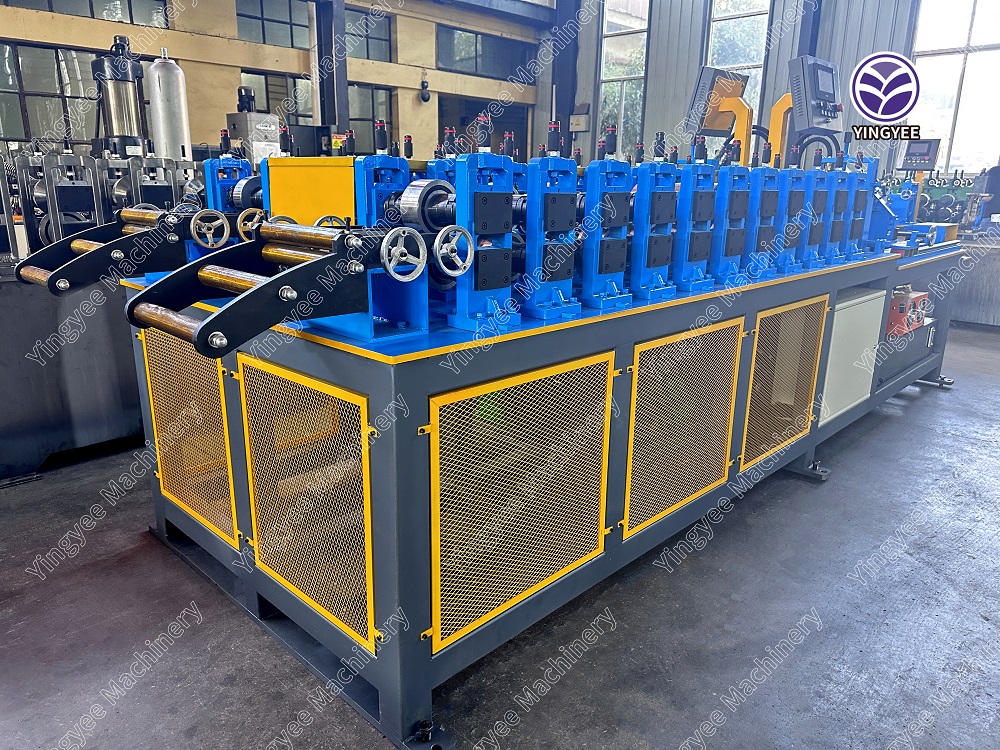
Understanding ERW Tube Mill Machines A Comprehensive Overview
Electric Resistance Welded (ERW) tube mill machines are pivotal in the production of steel pipes and tubes, primarily used in structural applications, automotive components, and various industrial processes. These machines utilize electric resistance welding technology to fabricate high-quality tubes and pipes from flat steel sheets or coils. In this article, we will explore the functioning, components, advantages, and applications of ERW tube mill machines.
How ERW Tube Mill Machines Work
The basic operation of an ERW tube mill machine begins with the feeding of flat steel coils or sheets into the mill. These materials are then shaped into a tubular form through a series of mechanical processes. The process involves several key stages
1. Uncoiling and Leveling The coil is unwound and leveled to ensure a consistent sheet thickness and surface quality.
2. Forming As the sheet moves through the rollers, it is progressively shaped into a tube configuration through a series of rollers that gradually bend the material into a cylindrical form.
3. Welding The edges of the formed sheet are brought together and welded using electric resistance welding. This process generates heat through electrical resistance, which bonds the edges of the tube seamlessly without the need for filler materials.
4. Sizing and Cutting After welding, the tube undergoes sizing processes to ensure it meets the required diameter and wall thickness. The continuous tube is then cut to the desired lengths, ready for further processing or dispatch.
Key Components of ERW Tube Mill Machines
ERW tube mill machines comprise several essential components that ensure efficient operation
- Uncoiler Facilitates the feeding of steel coils into the mill, equipped with mechanisms to prevent slippage and allow for controlled feeding.
- Forming Stands A series of stands with specialized rollers that shape the flat sheet into a tubular form.
- Welding Machine The heart of the ERW tube mill, this machine consists of induction or contact welding systems that create the necessary heat for seamless welding.
- Sizing and Calibration Equipment Ensures that the tube meets specific dimensional tolerances, including diameter and wall thickness.
- Cutting Device A high-speed cutting unit that slices the continuous tube into predetermined lengths.
- Control Systems Modern ERW mills are equipped with automated control systems that monitor the entire process, allowing for real-time adjustments to enhance efficiency and quality.

Advantages of ERW Tube Mill Machines
ERW tube mills offer several benefits that make them a preferred choice for tube manufacturing
- High Production Speed ERW tube mills can produce long lengths of tubing at high speeds, significantly increasing production efficiency compared to other methods.
- Cost-Effective The use of electric resistance welding is less expensive than other welding methods, making ERW tubes more cost-effective for manufacturers.
- Versatility ERW tube mill machines can process a wide range of materials and sizes, accommodating diverse industry requirements.
- Quality Control The welding process produces strong bonds with minimal defects, resulting in high-quality finished products.
- Reduced Waste The continuous nature of the tube production process minimizes material waste, making it an environmentally friendly option.
Applications of ERW Tubes
ERW tubes are widely used in various industries, including
- Construction Steel pipes and tubes are essential for structural frameworks, scaffolding, and building infrastructures.
- Automotive ERW tubes serve as components in vehicle structures and systems, including exhaust systems and chassis.
- Oil and Gas The energy sector requires strong and reliable piping solutions for transporting oil and gas.
- Furniture ERW tubes are utilized in creating durable and stylish furniture frames.
- General Manufacturing Many industrial applications rely on ERW tubes for their mechanical properties and versatility.
Conclusion
ERW tube mill machines play a crucial role in the steel manufacturing sector, producing high-quality tubes that meet the diverse needs of various industries. Their efficiency, cost-effectiveness, and ability to produce high-strength products make them indispensable tools for modern manufacturers. Understanding their operation and advantages is essential for anyone involved in the manufacturing or utilization of tubes and pipes. As technology continues to evolve, ERW tube mills will likely see further advancements, enhancing their capabilities and applications in the global market.